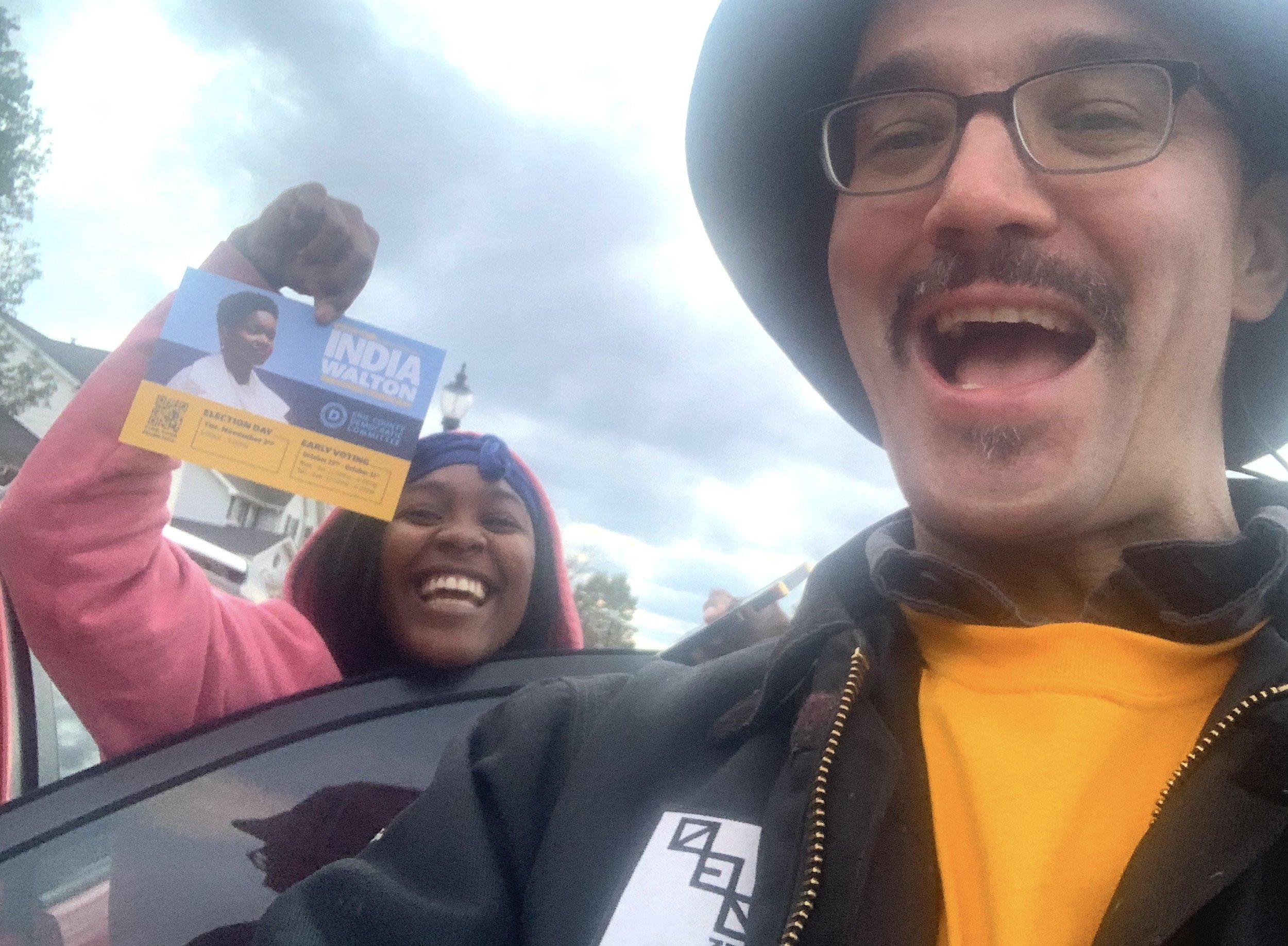The Strike at Mercy
The Catholic Worker
Sander Hicks
Published February 2022
We joined the picket line at Mercy Hospital, and marched in a circle for several hours in the gray Buffalo New York morning, late this October. In an age of pandemic panic, the workload of front line workers inside hospitals have been stretched to the breaking point.
Catholic Health is a corporation that runs three hospitals in Buffalo. There had never been a strike at Mercy before. But the issue that came up this Fall with nurses, aides and administrative workers (all members of Communication Workers of America) was the issue of proper staffing. The union and the workers at Catholic Health wanted better rules, to guarantee that there are plenty of nurses assigned to each shift.
“Every day, we are terrified of needless patient deaths in our hospital.…We have bargained for months to achieve a contract agreement…but Catholic Health stubbornly refuses to agree to iron-clad safe staffing levels that will ensure your safety. We have concluded that only a strike will make Catholic Health understand that we must have guaranteed increased staff and improved compensation, if we hope to provide the quality of care our community deserves.” So wrote the workers in an open letter to their patients and local community.
Catholic Health corporation spokesmen said they found it “inconceivable” that the CWA union would strike during the pandemic. But the union did honor its commitment to only strike at one of Catholic Health’s three hospitals. The biggest money-maker inside hospitals are “elective surgeries” which are optional.
“I would much rather be inside giving those patients the care that they deserve,” Josh Zuppinger, told the Nation. “I know being out here is going to give them the care that they deserve in the long run.” Zuppinger described a high point of the strike, when even an ailing patient rose up, left his bed, and joined the picket line out in the driveway. He was protesting the low quality of the temporary staff who were treating him. When they asked him to come back inside, he refused and said, “no, because the real nurses are outside.”
Our calls to Catholic Health’s CEO were not returned. The strike went longer than anyone expected, at five weeks. Talks stalled and stopped and then started up again. And then, Catholic Health refused to show up at all. Late in the strike, Catholic Health canceled health care benefits for its striking workers.
But after the darkest hour, the breakthrough came with a compromise. All three Catholic Health hospitals would be allowed to work together to balance out the staffing needs and meet the staffing demands of the union.
The union stated that the new contract would include a “compensation package adequate to allow Catholic Health to attract and retain the staff needed to obtain staffing improvements.”
During our time in Buffalo, there was also a broader struggle going on, in the political world. India Walton is a young, articulate nurse, and affordable housing advocate. She is also a single mother, who had been a presence on the Mercy picket line.
And she also happened to have won the Democratic Primary for Mayor, in one of those David-Vs.-Goliath kind of upsets that no one sees coming, but seems perfect after it happens. In her case, she ran a campaign around anti-poverty, and smart socialism. She eked out a victory of 1,500 votes, over the four term, establishment Democratic incumbent, Byron Brown.
We had made the 12 hour round trip journey to Buffalo because Brown had mounted a nasty come-back campaign, amassing a Trump money war chest, and putting paid police officers on television to denounce India Walton as a “Defund the Police” idealogue.
Walton is just the opposite. Her political mentor is Marshall Ganz, a sociologist and worker from Cesar Chavez’s United Farm Workers campaigns. Walton had distanced herself from “Defund.” Ganz had taught her: you can never campaign on a negative.
Although of course, Byron Brown did just that, with fear-mongering and half-truths, in negative TV attack ads. India Walton was crushed in the general election. Conceding gracefully, Walton said, “This campaign planted many seeds. The blossoms are inevitable.”
The “strike at mercy” in this case seemed to be the way the system rose up and nullified the victory of a fresh young leader. Catholic Worker’s former editor Michael Harrington wrote about the possibility of a “Realignment” of the Democratic Party to serve the interests of workers, women, and the poor. What happened in Buffalo showed the powerful entrenched interests acting as a class, and Party loyalty meant nothing to them. There was no mercy, or compassion.
Our trip to Buffalo was a mix of grinding victory, and crushing defeat. We pray for more mercy in this world.




